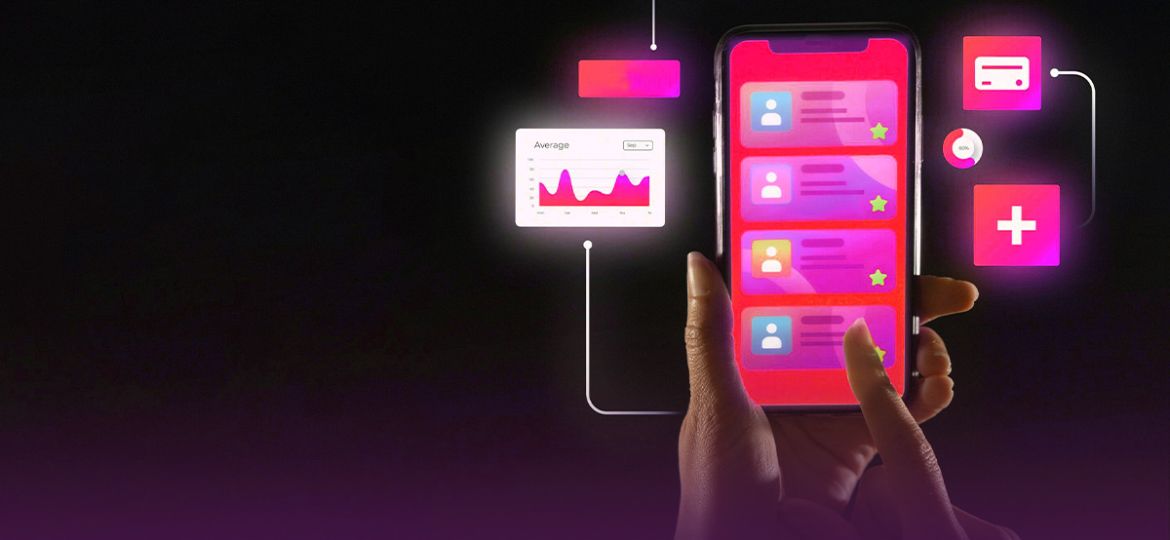
Why Personalization Will Shape Marketing Campaigns in 2025
In 2025, personalization in marketing will be at the forefront of how brands engage with their audiences. Consumers now expect experiences customized to their preferences, moving away from the era of traditional approaches. With growing digital competition, adopting precise marketing strategies will be vital for businesses to stay competitive and relevant.
This blog explores why personalized marketing strategies are the key to shaping the future of marketing 2025, and how businesses can adapt to meet these evolving consumer expectations.
Why Is Personalization Important in Marketing?
Personalization is essential in modern marketing because it helps brands connect with consumers on a deeper level. In a world with numerous generic content, personalized marketing speaks directly to individual preferences, raising engagement and customer satisfaction.
Moreover, it helps create stronger relationships, foster brand loyalty, and drive repeat business. Whether through personalized emails, social media ads, or website content, customized campaigns make the brand experience feel more meaningful.
The Shift to Hyper-Personalized Marketing
The shift toward hyper-personalized marketing is being propelled by advancements in technology. With tools like AI and machine learning, businesses can automate and refine personalization efforts, delivering content suited to individual consumer behaviors.
Consequently, this data-driven approach strengthens relationships, improves engagement, and builds customer loyalty by framing relevant, targeted messages.
What Consumers Expect from Personalized Campaigns?
As the demand for personalized marketing grows, consumers expect brands to understand their preferences across various touchpoints—emails, websites, ads, and social media. Furthermore, with the growing use of detailed consumer data, brands offer customized recommendations, which in turn creates more relevant and engaging experiences for their audience.
As a result, consumers now expect every brand to provide similarly customized experiences, pushing businesses to keep pace or risk losing relevance.
Beedesign’s Role in Personalizing Marketing Efforts
- Customized Campaigns: Beedesign crafts marketing strategies focused on specific goals, addressing the unique needs of different audiences to build meaningful connections.
- Data-Driven Insights: We utilize data to create engaging content that resonates with audiences based on their behavior, making campaigns relevant and impactful.
- SEO Expertise: Beedesign optimizes content for search engines, improving visibility and wider engagement, and supporting brands to reach potential customers.
- Customer Behavior Analysis: We analyze consumer behavior to refine marketing strategies, making sure the right message reaches the right audience at the right time.
- Continuous Refinement: We constantly refine marketing approaches based on performance data, helping to improve outcomes and achieve steady growth.
Top Personalization Trends to Watch in 2025
- AI-Powered Content Customization: AI is poised to play a central role in creating personalized content. By analyzing user preferences and behaviors, AI will help brands develop hyper-targeted campaigns, improving both engagement and conversion rates.
- Predictive Analytics: Predictive analytics will allow brands to anticipate consumer needs before they express them. This allows marketers to send relevant content at the perfect moment, maintaining the customer-brand relationship.
- Interactive Experiences: In 2025, interactive content like quizzes, polls, and surveys will engage consumers in innovative ways, providing valuable insights into customer preferences and further enhancing personalized campaigns.
- Cross-Channel Personalization: Consumers now expect a personalized experience across every platform they engage with, from social media and websites to email campaigns. Cross-channel consistency is key to maintaining consumer trust and satisfaction.
Overcoming Challenges in Personalization
While the benefits of personalized marketing are clear, businesses face challenges, particularly in data privacy and security. With growing concerns over consumer data protection, brands must handle data transparently and responsibly to maintain trust.
Technological integration is another challenge; many businesses struggle to implement new personalization tools into existing systems. However, addressing these challenges is essential for staying competitive.
Finally, scaling personalization efforts requires allocating appropriate resources. A dedicated team and sufficient budget are necessary to effectively implement these strategies at a scale.
What’s Next and Benefits of Personalization in Marketing
The future of marketing 2025 will be shaped by emerging technologies:
- AR and VR Experiences: These immersive technologies will redefine how brands connect with customers, offering new ways to personalize experiences.
- Metaverse Marketing: Personalized interactions in the metaverse will open new doors for brand engagement, allowing for deeper consumer connections.
- Automated Personalization: AI-powered tools will help automate and simplify the delivery of customized content, making it more accessible to businesses.
- Ethical Practices: As marketing evolves, businesses must balance innovation with the ethical use of customer data, upholding consumer rights.
Personalize Your Strategy for 2025 Success
To stay ahead in 2025, businesses should begin implementing personalized marketing strategies like dynamic website content, customized email campaigns, and social media ads. AI-powered tools can automate and scale these efforts as consumer behaviors evolve.
Ongoing analysis of customer data is essential to refine personalization efforts and help brands adjust to change preferences and behaviors.
Interactive Insights and Tools for Personalized Marketing
To begin your journey into personalization, utilize the following tools:
- AI Platforms: These platforms help businesses automate content targeting, delivering highly relevant content to specific customer segments based on data-driven insights. With AI, you can continuously optimize campaigns and improve engagement with minimal effort.
- Customer Relationship Management (CRM) Software: Manage and analyze customer interactions across various touchpoints. CRM systems help businesses store and organize data about customer preferences, behaviors, and purchase history, providing insights that enable more meaningful, personalized communication with each client.
- Data Analytics Tools: Extract actionable insights from customer behavior, such as purchase patterns, browsing habits, and engagement metrics. These tools help refine campaigns by identifying trends and preferences, allowing businesses to adjust strategies in real time and deliver content that is both relevant and timely.
Final Thoughts
Personalization is the future of marketing. Businesses that adopt personalized marketing strategies today will lead the way in the future. Consequently, they will stand out in an increasingly competitive digital marketplace.
Take your marketing to new heights. Contact Beedesign for expert assistance in creating impactful, targeted marketing campaigns that drive results.
